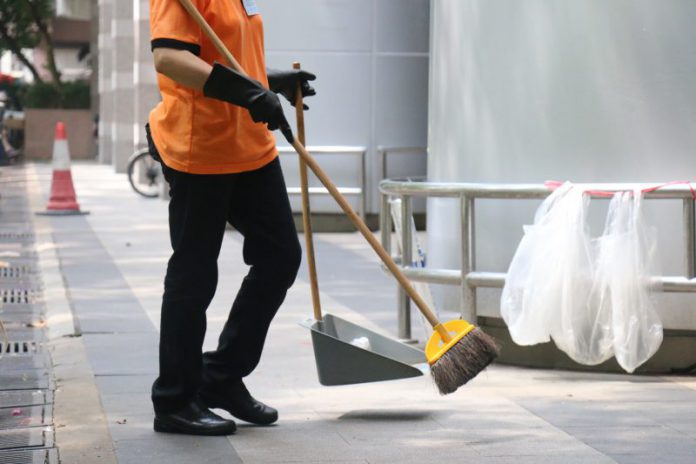Inadequate regulation puts outsourced workers at risk of labour abuses
by Gloria Lee & Jessica Li
Lam Siu Mui (not her real name), a 40-year-old who has worked as a cleaner for more than 20 years, sits with a union organiser and prepares to tell her story. In December, 2014, she started working for a contractor providing outsourced cleaning services for a public housing estate.
But she quit last July when she discovered the company had been cheating on her salary and holidays. “I have never experienced such deception in the 20 years I’ve been working,” says Lam. “I had trusted the company, but I have been hopelessly depressed after this.”
Lam is her family’s sole breadwinner. “I have to feed my parents in the Mainland and my 15-year-old son who lives with me,” she says, “I work two jobs a day.”
Lam trusted her team leader at work so whenever the team leader handed her documents to sign, she would do so without hesitation, even though she could not understand the contents.
“I’m illiterate, I was thankful to have a job,” she explains.
In July, 2015, Lam told her team leader she needed a few days of leave to look after a sick relative in the Mainland. She was shocked when the team leader told Lam she had already used up all her annual leave for 2015. Lam says she had not taken a single day of annual leave that year.
When she announced she was quitting, the team leader changed tack because she wanted to keep Lam on. “She [the team leader] said she could compensate me for all the annual leave days owed to me if I chose to stay,” Lam recalls.
Later, she quit anyway and decided to take legal action against the company with the help a trade union. That was when she says she realised she had been misled to sign documents such as rosters and applications for annual leave. These showed Lam had taken all her annual leave days and had taken regular days off.

In fact, she says, the company had sometimes asked her to work on her days off. “When they told me to work on days off, they didn’t give any reason except to say the company needs me.”
John Leung Yip-hon from the Hong Kong Confederation of Trade Unions has been helping Lam for more than a year. Leung says he handled more than 60 similar cases in 2015. He thinks Lam has little chance of winning in court because the company has all the supporting documents but Lam has only her word.
Leung says it is common practice for contractors to cheat on outsourced workers’ holidays and salary and the government’s policy of outsourcing has led to labour abuses and hurt workers’ rights and livelihood.
He explains that a contractor may only make a profit of around HK$30,000 a month for providing cleaning services on an estate; that is if they do not cheat.
“If a worker normally works eight hours a day at the minimun wage level of HK$32, that’s HK$256 a day,” Leung calculates. “If there are 70 cleaners in the housing estate, the contractor can make an extra profit of HK$17,920 by cheating one day of holiday from each cleaner.”







































